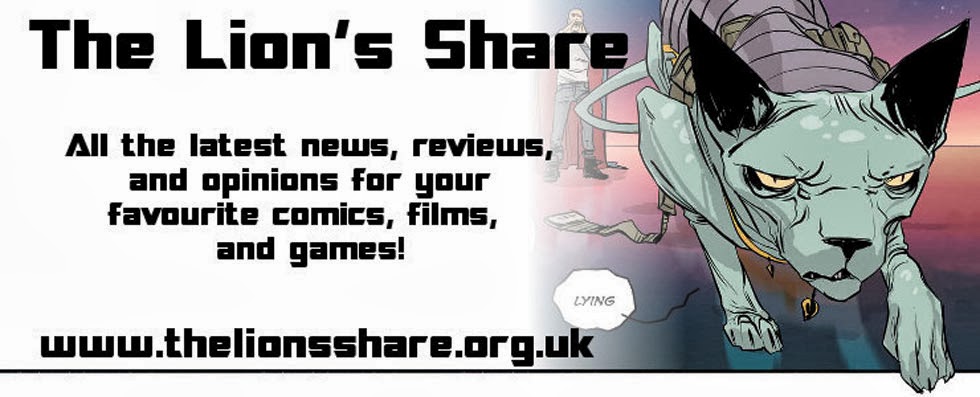I’ve been going along with his efficiency drive with a certain degree of reluctance to be honest, being at least a theoretical fan of creative mess, but he knows me well. And he’s found just the tool to drag me over to the administrative dark side.
 |
| The hardback graphic novel is a beautiful artefact and a welcome addition to any collection! |
Imagine if you will, a gleaming expanse of white, glistening in the September sunshine like a fresh fall of snow. Affixed to the wall like a window through which you might see pretty much anything, is our brand new whiteboard, complete with pens heady with the tang of planning and schedules and industrial strength solvents.
The thing is, it’s almost impossible to resist the allure of a clean slate. The chance to do things right this time around, mistakes rubbed out, virgin territory to shape after our own perfect visions.
It’s a desire that I can’t help but think Megan McKeenan, anti-heroine of graphic novel Local, might be rather familiar with. The story follows her through twelve years of fresh starts as she flits from city to city trying on identities for herself as often as Kate Moss changes her outfit.
 |
| Meet Megan, the perpetual runaway... |
Megan is a perpetual runaway. And when the mistakes she makes tangle her current situation too much, she simply bails, ready to start again with a different picture. Each part of her twelve piece story stands in glorious isolation, yet the thread of her own true self ties it all together and anchors the narrative for us. In some pieces, she takes centre stage. In others she is little more than a bit part, peripheral to her own life.
But is it any good?
Well, yes actually.
Megan is an anti-heroine because of her quite startling capacity to fuck things up. She gropes blindly for human connection, sulking like a spurned child in a school playground when her erstwhile room-mate seemingly rejects her overtures of friendship, yet she also goes out of her way to sabotage the relationships that do come her way. Megan lies, bitches and self-obsesses her way through each frame. Yet, and you’re going to have to trust me on this one, she is still somehow likeable.
 |
| Trust me, she is still somehow likeable! |
Maybe it’s because her mistakes are our mistakes, albeit in microsm. If you’ve ever been uncertain about what you want, treated a lover badly, or let your own problems blind you to other people’s then it’s pretty hard to judge Megan too harshly because she recognizes her shortcomings and keeps trying regardless. One of the most powerful vignettes of the book comes as Megan’s intermittent postcards to her young cousin float voice-over style as we witness his adolescent self-destruction. Her well intentioned advice is rendered meaningless in the face of the harsh realities of life; an uncompromising reminder than you can’t simply phone in love and support.
And as Megan keeps running, she slowly comes to realise that it isn’t just the weather that you take with you everywhere you go. Her problems pursue her, and so ultimately do the people she tries and fails to connect with. Things climax when all of the ghosts from her past catch up with her at once as she finally picks a place in which to stand, fight or fall.
 |
| In some pieces, she takes centre stage. In others she is little more than a bit part, peripheral to her own life. |
On some levels, Local is a straightforward story about a young woman’s attempts to find her place in the world, but if you like a little more symbolism in your comics you won’t be disappointed. Keys feature heavily; in particular the key that Megan carries around her neck as a reminder of the first home she ever flees and the mother whose dreams she comes to embody. Similarly photographs and other objects of sentimental value occur and recur, the outward detritus of human emotion. In a disturbing segue, Megan strikes up a relationship of sorts with a boy who steals her keys to leave pictures of himself in her apartment, quite literally physically asserting himself within her life.
Visually, Local is stark; gritty even. People matter, with faces in particular vividly drawn though rarely romanticised. The look of it somehow serves to reinforce the feelings of isolation and yearning that Megan experiences. It’s also something that is not quite a love letter to the USA itself… there’s a wary affection for the cities that feature but it’s worth noting that it’s only in rural America that Megan finally finds any kind of peace with herself.
 |
| Note the key around her neck, Local is full of symbolism relating to keys... |
Ultimately, we all want what Megan wants. To be sure that we are living the life we are supposed to, rather than allowing our mistakes to divert us into boxes that don’t fit. Her wanderings are a metaphorical echo of our own false starts and reinventions. But she has the key to her true home all along. We should all be so lucky.
This week, Kate Townshend is guzzling Pimms while there is still time!

No comments:
Post a Comment